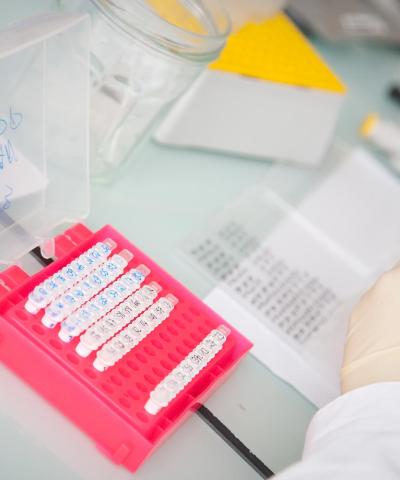The expertise of our teams in the earth, life, environmental and digital sciences, as well as in the human and social sciences, makes UniLaSalle a particularly relevant player in the search for sustainable and economically viable scientific and technical solutions to the challenges facing our society in the future.
RESEARCH AT THE HEART OF TRANSITIONS
The research activities carried out on UniLaSalle's 4 campuses contribute fully to the Sustainable Development Goals defined by the United Nations.
The complementary nature of our teams enables us to contribute to the emergence of sustainable solutions for the necessary transitions:
- Agro-ecological transition and ecosystem services, via the conservation and enhancement of natural resources;
- Food transition and agri-health, via food quality and safety and their effects on health;
- Energy transition and sustainable territories, via ecomaterials, new energies, the bioeconomy and the circular economy.
The One Health approach aims to integrate human health into a broader process of global health, starting with the preservation of wild and anthropized ecosystems (biodiversity, sanitary and functional integrity) to guarantee food security for both human and animal populations, and maintain the balance of biotic chains. This approach takes into account the notion of ecosystems in permanent interaction, and is largely based on the objectives of Sustainable Development. Thanks to the complementary nature of the research themes of UniLaSalle's teams, the Institute's work is part of the globalized context of One Health, One Planet.
RESEARCH WITH AND FOR BUSINESSES AND LOCAL COMMUNITIES
UniLaSalle is ready to take up the societal challenge of energy, digital, agro-ecological and food transitions to create sustainable territories.
Accompanying companies in their transformations is in our DNA. Our aim? To develop technological and organizational innovations by leveraging creative, partnership-based, disruptive research across the entire TRL (Technology Readiness Level) scale.
This proximity to companies is reflected in the development of training and research chairs.
In an uncertain environment with high stakes on a global scale, in which science is both questioned and subject to criticism, and in which values and references give rise to debate and contradiction, an approach to science that is more rooted in society is proving to be an appropriate solution. Participatory science can provide the openness of viewpoints that will make scientific work part of a more integrative process, leading to better understanding and acceptance by citizens.
RESEARCH IN SUPPORT OF TRAINING
UniLaSalle trains enlightened and ambitious future professionals to lead the ecological and societal transformation. It is through a complementary teaching/research approach that we will succeed in transmitting through and for action, by "teaching differently to produce differently"; consolidating research-training interactions and making training part of a perpetual process to support future generations throughout their lives.
MEET THE PEDAGOGICAL CHALLENGE OF "DOING TO UNDERSTAND, UNDERSTANDING TO DO".
Research is of paramount importance in the implementation of the transition. At UniLaSalle, we need to make it easier for students to access the research carried out in our units, and to become more involved in research activities. It is this complementary teaching/research approach that will enable us to train enlightened and ambitious future professionals to lead the ecological and societal transformation.





